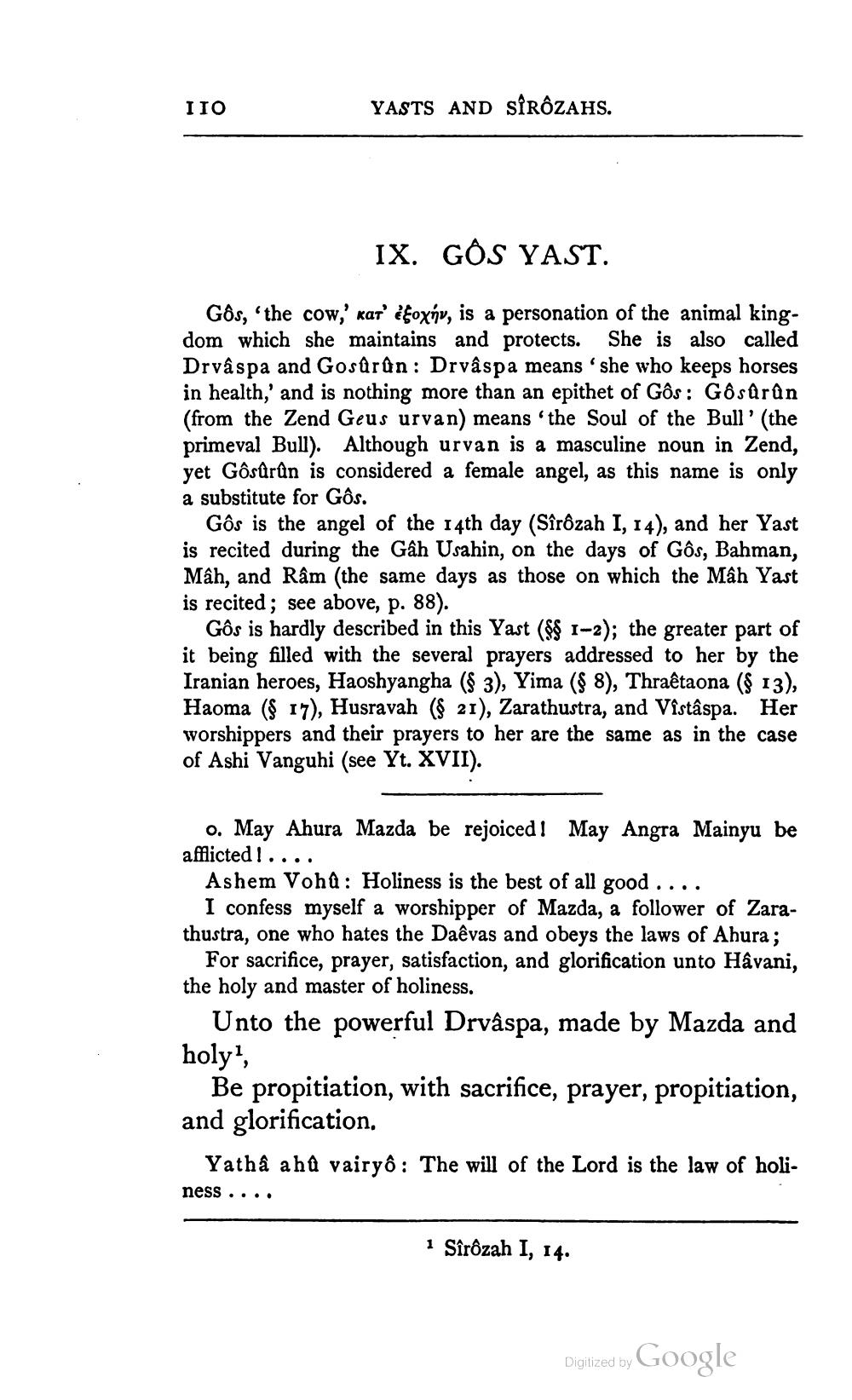________________
IIO
YASTS AND SÎRÔZAHS.
IX. GOS YAST.
Gôs, 'the cow,' kar' étoxív, is a personation of the animal kingdom which she maintains and protects. She is also called Drvâ spa and Gosûrûn: Drvâspa means 'she who keeps horses in health,' and is nothing more than an epithet of Gôs: Gôsûrûn (from the Zend Geus urvan) means 'the Soul of the Bull' (the primeval Bull). Although urvan is a masculine noun in Zend, yet Gôsûrûn is considered a female angel, as this name is only a substitute for Gôs.
Gôs is the angel of the 14th day (Sîrôzah I, 14), and her Yast is recited during the Gâh Usahin, on the days of Gôs, Bahman, Mâh, and Râm (the same days as those on which the Mâh Yast is recited; see above, p. 88).
Gôs is hardly described in this Yast ($$ 1-2); the greater part of it being filled with the several prayers addressed to her by the Iranian heroes, Haoshyangha ($ 3), Yima ($ 8), Thraêtaona (§ 13), Haoma ($ 17), Husravah ($ 21), Zarathustra, and Vistaspa. Her worshippers and their prayers to her are the same as in the case of Ashi Vanguhi (see Yt. XVII).
o. May Ahura Mazda be rejoiced! May Angra Mainyu be afflicted!....
Ashem Voha: Holiness is the best of all good.
I confess myself a worshipper of Mazda, a follower of Zarathustra, one who hates the Daêvas and obeys the laws of Ahura;
For sacrifice, prayer, satisfaction, and glorification unto Havani, the holy and master of holiness.
Unto the powerful Drvâspa, made by Mazda and holy?,
Be propitiation, with sacrifice, prayer, propitiation, and glorification.
Yatha a hở vairyô: The will of the Lord is the law of holiness....
· Sîrôzah I, 14.
Digitized by Google




